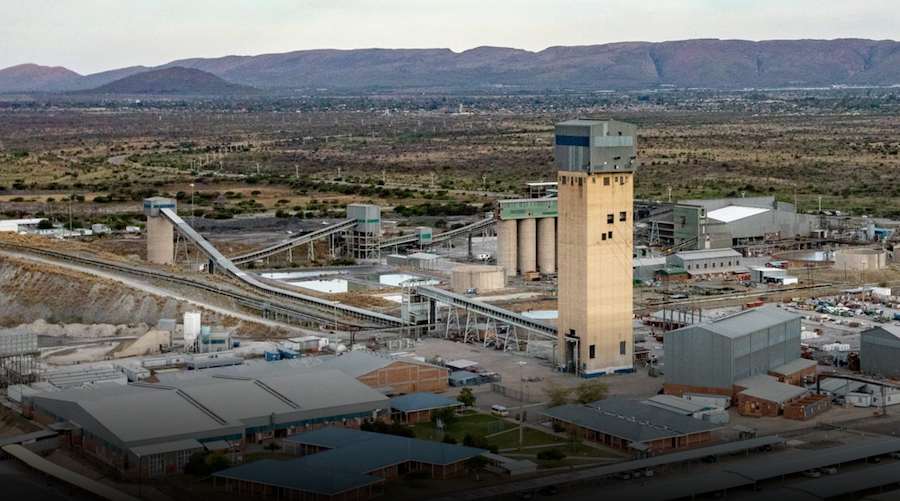Mining Indaba: Industry demands sweeping overhaul to revive South African mining
Posted Under Commodity News, On 06-02-2025
Source: mining.com
Miners in South Africa are calling for sweeping changes to modernize regulations, streamline licensing and upgrade critical infrastructure to revive the country’s flagging mining sector.
Investment to mine in Africa’s most developed economy fell 9% last year to R1 trillion (about $54 billion) from a year earlier, figures released this week show. Mining contributed R433 billion ($23.3 billion) to the economy, a 2.6% drop from 2023.
“We want to grow because we want the mining industry to make a better, bigger and sustainable contribution to the people of South Africa,” Mzila Mthenjane, CEO of the Mining Council of South Africa, said Wednesday on the sidelines of the Investing in Africa Mining Indaba in Cape Town.
The council’s members include the country’s largest miners such as Anglo American (LSE: AAL), Gold Fields (NYSE: GFI; JSE: GFI), Harmony Gold (ticker)and Sibanye-Stillwater (NYSE: SBSW) among others.
South Africa’s Mineral and Petroleum Resources Development Act of 2004 has failed to deliver the growth and transformation that was expected at the time, a review released Wednesday by Mining Dialogues 360° and Good Governance Africa found. The groups want a fresh vision and open talks with stakeholders for broad policy changes to rebuild investor trust and promote the sector’s long-term growth.
Mintek, South Africa’s national organization for mineral processing and resource development, estimated the country’s mineral wealth at over R2.5 trillion ($134.4 billion) in an August report. South Africa controls 88% of the global platinum group metals and 80% of the global manganese market, Mintek CEO Molefi Motuku said at the conference.
Motuku urged policymakers to use these resources to boost economic growth and industrial development. Structural problems, such as unreliable electricity, crumbling roads and ports, logistics issues and labour disputes, are hindering growth, he said.
Exploration buckled
Outdated policies and failing infrastructure are strangling the industry, the council’s Mthenjane agreed Wednesday.
Exploration investment has collapsed to R1.2 billion (US$65 million) in 2023 from R6.2 billion ($333 million) in 2008. Council data released during the Cape Town conference show the country’s share of the global exploration budget has dropped from over 5% to less than 1% during the period.
A clear and modern regulatory framework is required to boost investor confidence, Hugo Pienaar, the council’s chief economist, said Wednesday at the conference. This framework, which should secure tenure and remove overlapping rights, is essential for driving the local exploration the sector needs, he said.
Last year, South Africa’s minerals sector employed 475,000 people and paid R195 billion ($10.5 billion) in wages. The sector also generated R117 billion ($6.3 billion) in taxes and royalties, as reported by the council. Each mining job spawns up to 10 additional jobs and supports four to five family members.
What miners want
South Africa’s miners want rules that bring in local and foreign investment in prospecting, as well as suitable rules for exploration companies, said Mthenjane. The goal is to encourage early-stage investment with laws that support business.
Miners expect a quick rollout of a modern, clear mining cadastre, which would help clear the backlog of unprocessed prospecting and mining right applications while speeding up new applications without legal challenges. Miners also want government departments to work together.
What’s more, South Africa’s mining companies are seeking a one-stop shop for approvals of exploration and mining projects. They are proposing a new Department of Mineral and Petroleum Resources process to remove major investment barriers.
Beyond minerals
Government and industry efforts are now targeting these issues head-on, Mthenjane said.
Operation Vulindlela 2.0 aims to boost the country’s GDP by 3% in the medium term by tackling specific constraints on mining performance. Reforms to the national rail operator Transnet are to open dilapidated rail networks and ports to private investment. Analysts expect rail tonnage to climb from 160 million tonnes this financial year to 250 million tonnes by 2030.
Miners are helping to address energy challenges, the council says. State power utility Eskom recently had 311 days without load shedding – local lingo for rolling power cuts – following a decade of regular blackouts. Private sector engineers aided the recovery, before blackouts once more crippled business in Cape Town on the eve of the Indaba.
South Africa’s mining industry supports 90 renewable energy projects worth R275 billion ($14.8 billion), Mthenjane said. These projects promise 15.8 gigawatts of capacity to help reduce grid pressure.
Miners are also investing R37 billion ($2 billion) in water supply projects in the Limpopo and the Northern Cape provinces amid a worsening drought.

